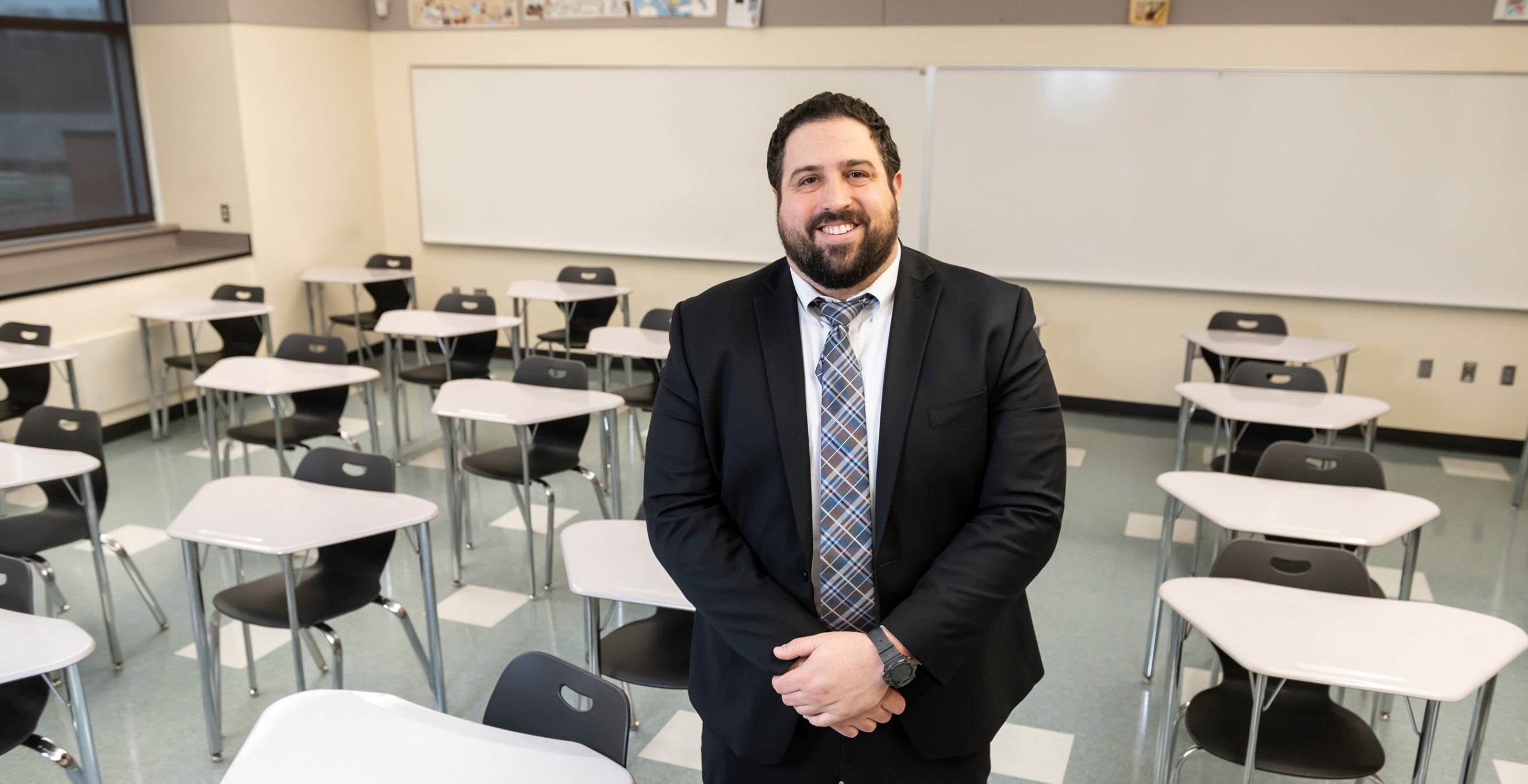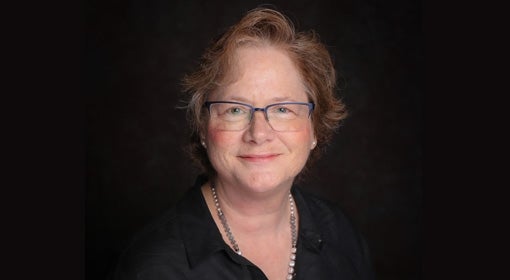Becoming a teacher wasn’t part of Joseph Villani’s original plan. He wanted to be a professional football player. As a Pitt undergrad, he studied history and communications rhetoric while serving as an offensive lineman for the Panthers. Once in the NFL, he thought he’d reached his ultimate goal — but after brief stints with the New York Jets, Tampa Bay Buccaneers, Atlanta Falcons, and the Arena Football League teams left him with a significant shoulder injury, he was forced to reexamine his future.
That’s when he started thinking of an experience he had at Pitt coaching an elementary-aged sports camp with his Panthers teammates. As Villani laughed and bantered with the kids, one of the athletic directors pulled him aside, impressed with how he motivated and connected with the young athletes. “You would make a great teacher,” she told him.
Villani (A&S ’05, EDUC ’12) found the idea appealing. With his professional football career behind him, he returned to Pitt to earn a social studies teaching certificate in 2010 and a master’s in education in 2012. Fueled by his new passion and additional degrees and certifications, Villani soon ascended the ranks from teacher to administrator.
Today, he lives outside Pittsburgh and is the principal of Bethel Park High School. His career pivot — and the wisdom his previous path provided him — is a reminder that it’s never too late to change your game plan.
Pitt Magazine: Based on your experience, what would you say to someone who’s thinking about pursuing a new career?
Joseph Villani: Be open to change and make yourself versatile. I’d planned on professional football with law school as my Plan B. But that day at Little Panthers Camp, when Donna Sanft — our now-retired associate athletic director — said I should go into education, it planted a seed.
After earning my education degree, I started student teaching and coaching, and I continued getting certifications. I wanted to make myself as valuable as possible. With football, I’d trained in several positions. I’m similarly training with my education and degrees. When my number’s called, I could go to multiple places in a school.
What’s the mark of a good leader?
I wouldn’t ask somebody to do something I wouldn’t do. I never want to be a “boss” — I want to lead by example. Also, a good leader connects with people. It’s easy as an administrator to lock yourself in your office, but you can’t lead from behind the desk. Just like on a sports team, you have to trust the person next to you on the field. If you don’t see them and they don’t see you filling your role, it’s difficult to earn trust.
I go out to dismissal every day. I interact with the students and get to know them better. I meet with students and staff often. It is important to connect and build a rapport. If you haven’t established a great relationship when times are good, it’s hard to effectively lead during the more difficult times. Education is not a business; it’s all about relationships. That’s what makes working in this career so special.
It’s a difficult time to be a young person. As a principal, and as a former self-motivated student-athlete, what do you think today’s youth need to hear?
It’s OK to be where you are. So many times, we judge our Chapter 3 against somebody else’s Chapter 26. Everyone focuses so much on the destination that they sometimes lose sight of the small but necessary steps it takes to get there. The journey is the most important part. That is the process of adding value to yourself every day — learn something new, read more and build relationships. Every choice, every decision you make, helps shape your circumstances. Everyone’s path is different, and there are numerous ways to get there, you just have to take the next step.
This story was published on January 26, 2023. It is part of Pitt Magazine's Winter '23 issue.


